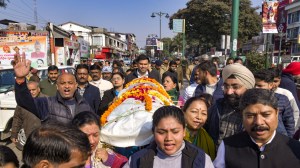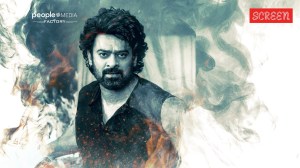Dull dogma doesn146;t a syllabus make
In the new NCERT books, exercises are framed in a way that the student8217;s critical acumen can turn upon the book itself

It would be a shame if the parliamentary furore over NCERT textbooks provides yet another occasion for a display of anti-intellectualism and partisan crossfire. Of the three issues raised, the first can be dealt with swiftly: some freedom fighters have been described as terrorists. Ironically, the reference here is to a revised version of a textbook that has been used for years and should be phased out as the process of producing the new textbooks is completed.
Consternation has been expressed over the inclusion of events like the anti-Sikh riots, Gujarat and Emergency in the political science syllabus of class XII. Judgment should await the completion of the textbook. But the syllabus itself is revolutionary. For the first time there will be room for events that are an embarrassment to the ruling party of the day, not just the opposition. Two, the syllabus fills a yawning gap that results from history stopping at 1947. Anyone who has looked at the new political science and history textbooks for class IX and XI will find complaints against the new curriculum and textbooks baseless.
The new textbooks are among the most exciting things that have happened in a long time. Scholars stewarding the process of curriculum or textbook writing like Ram Guha, Yogendra Yadav, Suhas Palshikar or Neeladari Bhattacharya hardly your rabid partisan list have done a magnificent job of infusing new vitality into textbooks. In the interest of full disclosure, I must say I played a very minor part in the committee that produced the textbook on the Constitution
The issue is not what particular politics or history you teach, but whether students can learn to think. The ambition is not to preach dull dogma, but cultivate thought itself. In the new books, exercises are framed in a way that the student8217;s critical acumen can turn upon the book itself.
Books must provoke discussion, incite new questions and point to ways of finding answers. The old textbooks were a product of pedagogy that had dogmatic faith in its own authority. The authoritative voice generated a corrosive scepticism, and since those textbooks did not trust the intelligence of students, they came not to trust themselves.
The inclusion of contemporary history must be seen in this context. My first political memory is hearing of the horrors of the Emergency. I was in high school when the anti-Sikh carnage in Delhi took place, the Shah Bano case was threatening to erupt and even a quick glance at a newspaper would raise troubling questions. But our textbooks did not equip us to ask those questions. There were intense conflicts in society, yet the textbooks presented a vision of Arcadian harmony. In an age even more marked by information than our age of pre-TV innocence was, the yawning gap between textbooks and society will generate an even more corrosive scepticism.
There are difficulties in objectively recounting events close to us. One ought not to underestimate the problems of writing a contemporary history that is unmediated by a powerful vocabulary of human motivations. One needs a supple sense of causation, the paradoxes and ironies of history, where good intentions flounder and evil ends up serving the cause of good. But though this utopian way of engagement is unavailable, we cannot run away from the past that has made the present.
There is a pedagogic core in the third set of issues: what does reference to some marginal material that is subversive of conventional piety mean when students might not have inner grasp of those pieties in the first place? And in a complex society we will differ over what we judge to be important. Perhaps those disagreements are best handled by ending state monopoly over textbooks. But the new textbooks have made difficult pedagogic calls that are necessary if we want to surpass ourselves.
One ought not to judge these new materials either in a partisan political frame or by repeating pieties that have sucked the life out of history and political science. A student body provoked into thinking will learn the valuable lesson that liberal citizens have to exercise their own judgment. This is a better outcome than the repression of argument, first by the old Left and then the RSS. The issue is not whether we can we trust the NCERT. It is whether we can trust our students.
The writer is president, Center for Policy Research, New Delhi


- 01
- 02
- 03
- 04
- 05





























